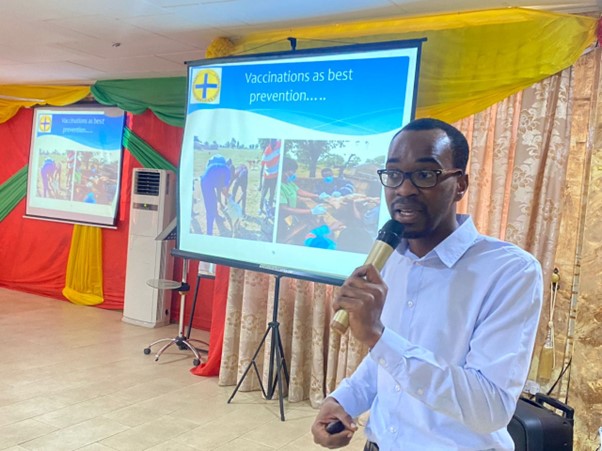Livestock traders in the Upper East Region have been strongly advised to prioritize the vaccination of their animals to prevent sudden and severe financial losses.
The advice follows the outbreak of Anthrax in the region in June 2023, which led to significant financial setbacks for livestock farmers and resulted in the imposition of a government ban on the movement, slaughter, sale, and consumption of meat and meat products.
During a presentation to members of the Upper East Regional Shipper Committee (UERSC) of the Ghana Shippers’ Authority (GSA) in Bolgatanga on November 8, 2023, Dr. Ransford Okornoh, an officer of the Ghana Veterinary Service, emphasized that, from the experience gained from managing the outbreak, vaccination is the most effective control measure.
Dr. Okornoh stated, “Vaccination is a far more cost-effective option than treating animals or humans after they’ve been affected. We are strongly advising farmers to ensure that their animals are vaccinated against Anthrax annually. Anthrax typically occurs before the rainy season, between late March and June. We urge farmers not to wait for government intervention, as it may be delayed, posing significant risks to both farmers and their livelihoods.”
He also mentioned that Veterinary officers and vaccines are readily available and accessible, thus, farmers can approach their local veterinary offices to request vaccinations to protect their investments, he noted.
Dr. Okornoh further intimated that, “Anthrax is an issue of major concern that requires careful management. During the recent Anthrax outbreak, it became evident that many farmers were neglecting the importance of vaccinating their animals against various diseases. While there are numerous diseases that can affect livestock, Anthrax is especially dangerous due to its potential transmission from animals to humans. Once Anthrax enters a farm, the mortality rate can be exceptionally high, resulting in significant livestock losses.”
He disclosed that the number of livestock traded in the region decreased substantially comparing 2022 and 2023. Between June and July 2022, 22,953 livestock were traded, whereas for the same period in 2023, the number plummeted to 11,475, the lowest figures in three years. It is also a 55% loss in revenue.
Dr. Okornoh urged farmers to take their livestock business seriously and implement strategies to mitigate their losses.










